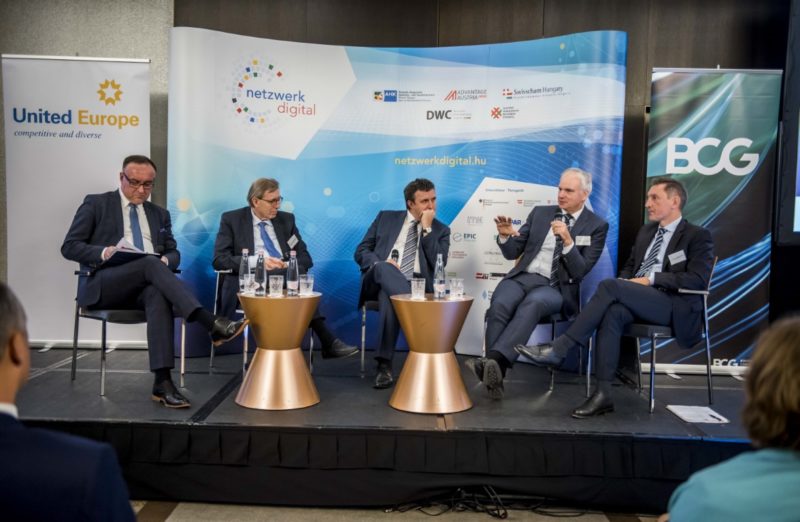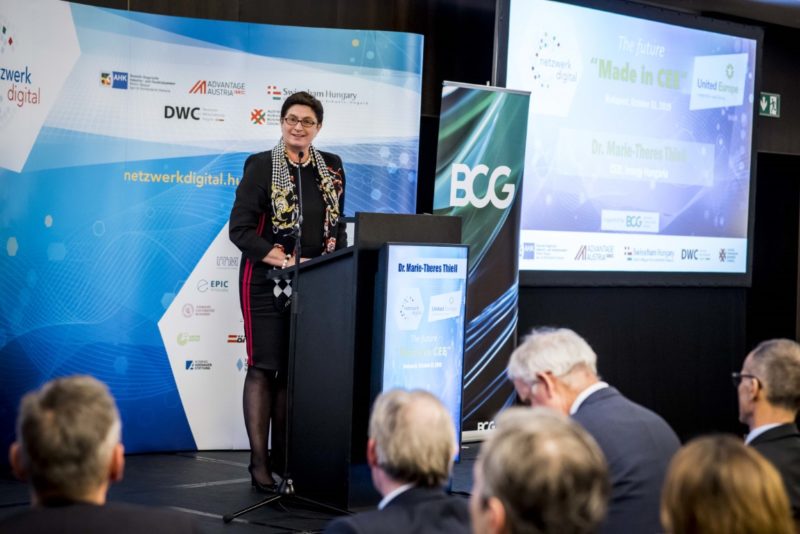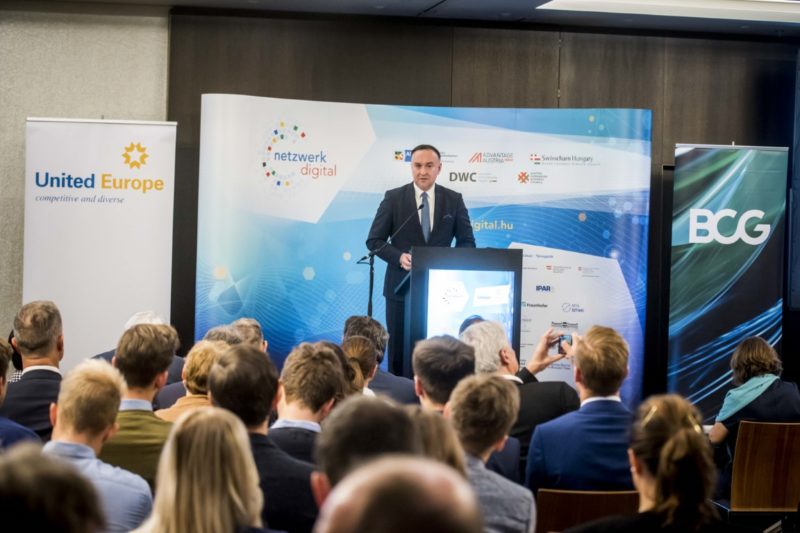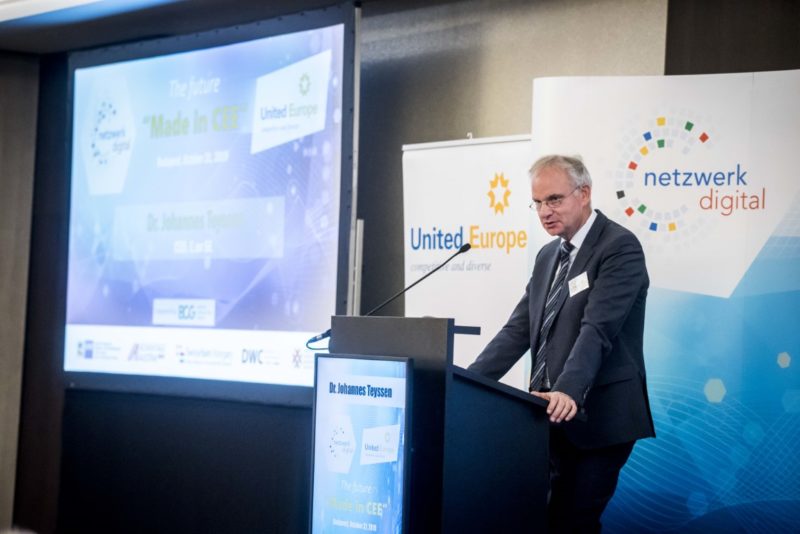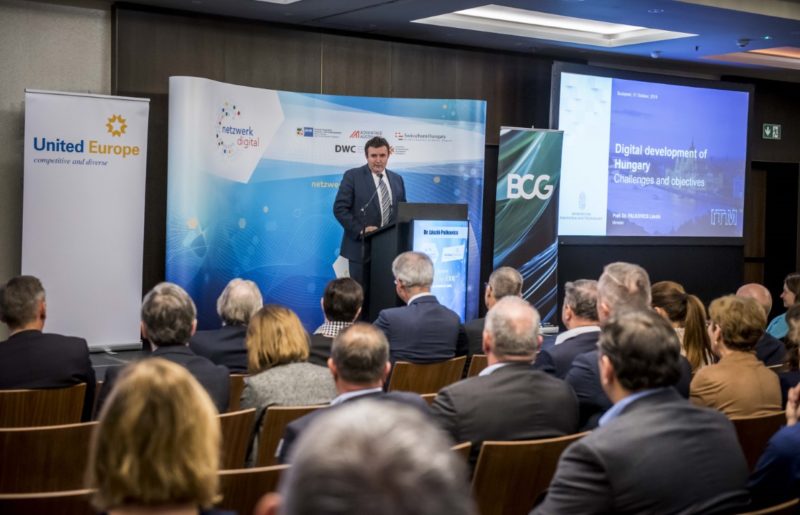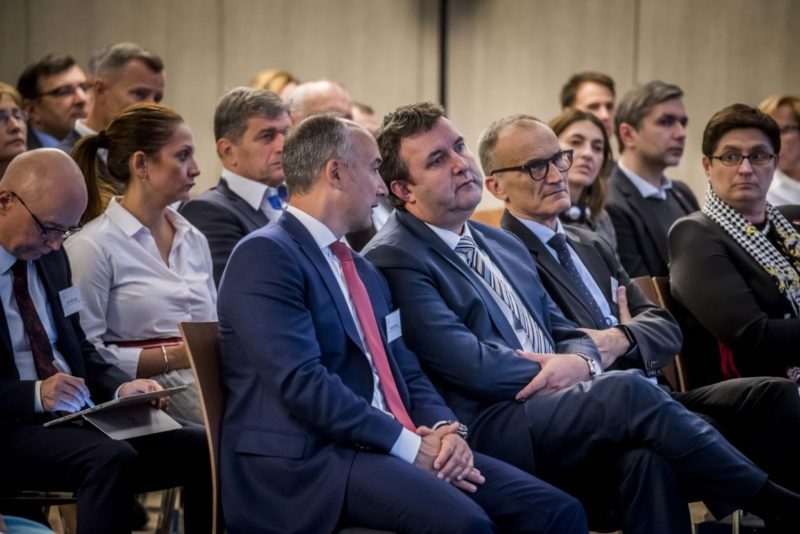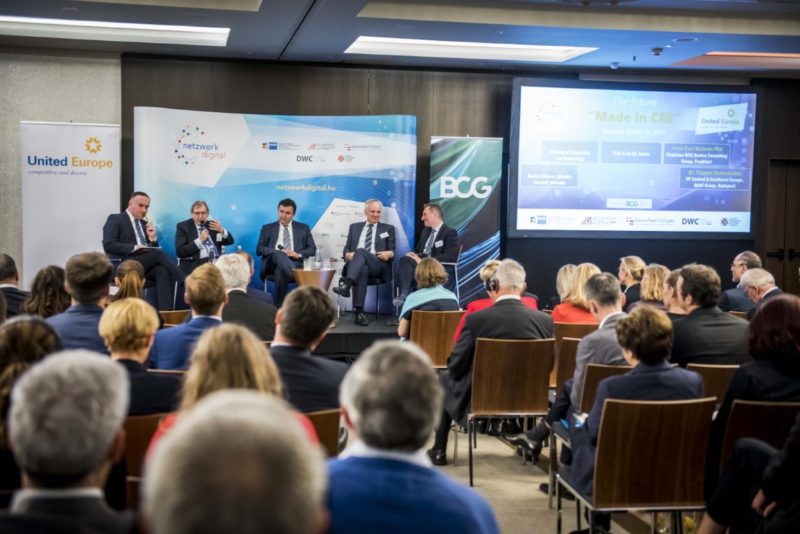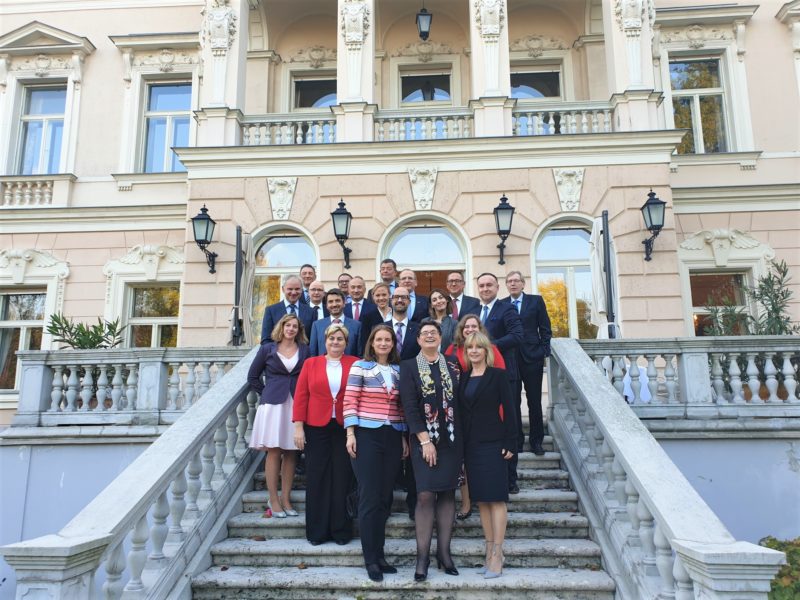What role Central and Eastern Europe will play for the economy of the European Union in the future was discussed by high-class participants in Budapest at the invitation of “Network Digital” and United Europe.
The countries of the Central and Eastern European (CEE) region are becoming more and more economically emancipated from their role as an “extended workbench” and are increasingly contributing to innovation and growth in the EU. Current technological changes can give the region an additional impetus. These are the key statements made at our CEO Roundtable “The Future ‘Made in CEE'”, held in Budapest on Thursday, 31th October.
The speakers at the conference, including Hungary’s Minister of Innovation and Technology László Palkovics and top managers from Germany and the region, agreed that the CEE region is already an indispensable partner in the European value chains and that its weight will continue to grow in the coming years. In doing so, they could benefit from the opportunities and possibilities arising from the rapid technological changes of the present, such as digitisation or the trend towards “Industry 4.0”.
The conference made it clear that for this changed role, the competitiveness of the region must be increased and that digitisation can make a significant contribution to this.
Marie-Theres Thiell, Managing Director at Innogy Hungary and Vice President of the DUIHK, presented the most important statements from a roundtable discussion at which about 25 top managers had exchanged their views on the opportunities and challenges of the region immediately before the conference. The focus was on the status and opportunities of the region in terms of international competitiveness as well as on the tasks that companies, the state and the education system still have to master. According to the managers, the latter in particular is of great importance, but the state must also ensure a regulatory environment that is open to innovation and competition.
In his keynote speech, Johannes Teyssen, CEO of the German energy company E.ON SE, stated that the world had once again entered a phase – as it did during industrialisation in the 19th century – in which technology would play a decisive role in the global distribution of wealth. Europe has to play catch up in this area. In his opinion, innovation arises where people with diverse personal, cultural and professional backgrounds can freely and openly exchange ideas. Teyssen was confident that this could be done in Europe, also with regard to digitisation. According to Teyssen, however, a successful digital transformation also requires a corresponding culture, and above all employees must be encouraged to acquire digital knowledge. Since everything that is digitised is also connected with electricity, Teyssen also discussed in detail the energy implications of digitisation, e.g. the digitisation of the energy industry itself.
In a subsequent panel discussion, attended by Minister Palkovics, Johannes Teyssen, Thomas Narbeshuber, Vice President Central and Southeast Europe of BASF, and Hans-Paul Bürkner, Chairman of the Boston Consulting Group, it was repeatedly demonstrated that digitisation will transform all sectors of industry without exception.
Hans-Paul Bürkner was convinced that the Central and Eastern European region would, in future, develop from a region of labour-intensive assembly companies into a location for “smart suppliers”, i.e. innovative suppliers. The region is already showing dynamic growth, with a well-educated workforce and a still considerable cost advantage. However, digitisation will change this economic model, and this will require increased efforts in digitisation. Above all, the digital transformation of the economy must be accelerated, employees must be prepared for this new era, and investments in digitisation must be encouraged. According to Bürkner, this could also mitigate demographic risks.
Thomas Narbeshuber stressed that digitisation offers Europe and the region a unique opportunity to compete in the global competition for innovative sustainable solutions. However, this would require a framework that companies and governments alike would have to work to implement. According to Narbeshuber, this includes, above all, trust in digital technologies, which make an opportunity-based regulatory environment possible in the first place. First-class connectivity, such as a nationwide and cost-effective expansion of 5G technology and significantly improved access to data, could make it easier for structurally weak regions and SMEs to participate in the innovation competition. Narbeshuber sees opportunities for the region, in particular, through targeted promotion of the areas of Industry 4.0, artificial intelligence and B2B industry platforms.
The event was moderated by Michal Kobosko, Senior Advisor at Atlantic Council in Warsaw.
We thank BCG and the Austrian Embassy in Hungary for their generous support!
Please find more information about Netzwerk Digital here: www.netzwerk-digital.hu



